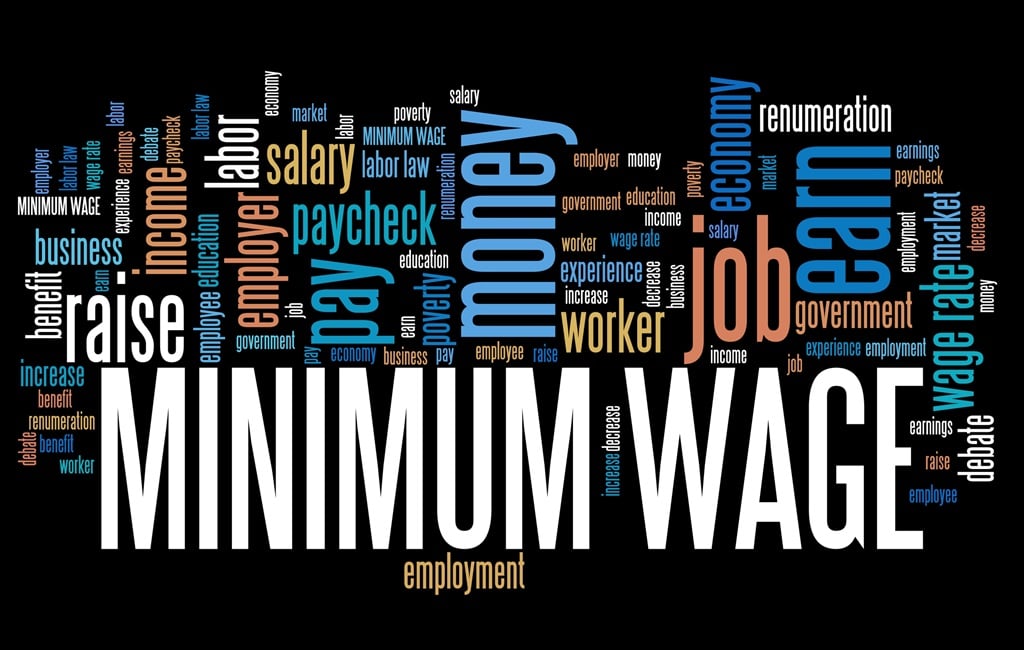
In November the labour department published the National Minimum Wage Bill that is set to introduce a minimum wage of R20 for each ordinary hour worked from May 2018.
Businesses need to familiarise themselves with the National Minimum Wage Bill and the proposed amendments to the Basic Conditions of Employment Act and the Labour Relations Act to ensure they understand how these legislative changes will impact their business in the new year.
The approval of the National Minimum Wage Bill is expected to result in changes to other employment laws.
Proposed changes to the Basic Conditions of Employment Act and the Labour Relations Act were published in the Government Gazette on 10 November and although these proposed changes still need to be adopted by Parliament, it is important for employers to familiarise themselves with them and assess their potential impact on the business.
The national minimum wage cannot be varied by contract, collective agreement or law.
Because it is envisaged that the national minimum wage will replace the minimum wages established through sectoral determinations, the relevant chapters of the Basic Conditions of Employment Act 75 of 1997 that deal with sectoral determinations will be repealed.
The Basic Conditions of Employment Act will continue to regulate basic terms and conditions of employment.
However, the Basic Conditions of Employment Amendment Bill (2017) introduces amendments to the Basic Conditions of Employment Act that provide for enforcement measures in the event of non-compliance with the National Minimum Wage Bill.
In addition, the proposed changes to the Basic Conditions of Employment Act make provision for the introduction of a new section dealing with guaranteed minimum hours of work.
This section provides that an employee who works for less than four hours on any day, will be entitled to be paid for four hours of work, if circumstances beyond the control of the employee prevent work from being performed.
Notably, the Basic Conditions of Employment Act Amendment Bill makes provision for the extension of the jurisdiction (the official power to make legal decisions and judgments) of the CCMA to include enforcement procedures and claims for underpayment (generally handled by the department of labour).
These provisions will allow employees earning below the earnings threshold to refer disputes to the CCMA and is intended to provide a more cost-effective and expeditious method of resolving disputes of this nature.
The national minimum wage proposed is R20 for each ordinary hour worked and will constitute a term of the employee’s contract except to the extent that the employee’s contract or a collective agreement provides for a wage that is more favourable to the employee.
The only exceptions to the R20 minimum wage applies to farmworkers who are entitled to R8 an hour, domestic workers who are entitled to R15 an hour and Expanded Public Works Programme workers, who are entitled to R11 an hour.
Employers are encouraged to bring their employees’ wages in line with the national minimum wage to avoid being held liable for the payment of penalties or interest for not complying.
In addition, various amendments have been introduced by the Labour Relations Amendment Bill 2017 to the Labour Relations Act, code of good practice on collective bargaining, industrial action and picketing and picketing regulations.
The purpose of these legislative amendments is to address the challenges of labour market stability and wage inequality.
The amendments provide a stronger environment for collective bargaining and wage negotiations and ensure that due processes are followed when strikes or lockouts take place.
The impact of strikes can be severe because they affect employers, employees and others who do not form part of the workplace.
The proposed changes to the Labour Relations Act are aimed at strengthening collective bargaining and inhibiting picketing (unless there are picketing rules in place) as a way of addressing violent strikes.
Trade unions and employers organisations will be required to make provision in their constitutions for a ballot of members before embarking on a strike or lockout.
Businesses that are not sure how they will be impacted by the National Minimum Wage Bill and proposed amendments to the Basic Conditions of Employment Act and Labour Relations Act should consider enlisting the services of a legal adviser to gain a deeper understanding of what they need to put into place to accommodate a different regulatory landscape.
• Advocate Tertius Wessels is legal manager at labour solutions firm Strata-G




 Publications
Publications
 Partners
Partners









